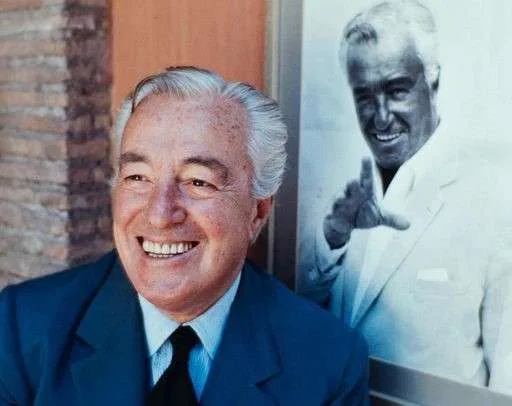Acclaimed actor, screenwriter and director Vittorio De Sica was one of the greatest figures of Italian cinema. He will always remain in the history of cinema as the father of neorealism, in the hearts of the audience as a representative of charming gentlemen or tragicomic figures, as well as the creator of unforgettable Italian comedies. He appeared in 160 films and 125 theatre productions and directed more than 30 films himself.
He achieved worldwide fame as a director of socially critical films in collaboration with screenwriter Cesare Zavattini. Four of his films - Children of the street (1946), Bicycle thieves (1948), Yesterday, today and tomorrow (1963) a Garden of the Finzi Contini (1970) won four Academy Awards for Best Foreign Language Film. His path to filmmaking, however, took a circuitous route.
He was born on 7 July 1901 in the town of Sora into the poor family of Umberto De Sica and his wife Teresa, née Manfredi. His father worked in a bank and contributed to a local magazine. The mother came from Naples, where the family moved in 1914. They later settled in Rome, where Vittorio studied accounting. At the age of 15, he began performing with amateur actors in plays for hospitalized soldiers while working as a clerk to support the family financially.
After obtaining a diploma as an accountant in 1923, he joined the Bank of Italy and cinema almost lost one of its stars. Fortunately, Tatyana Pavlova's company (a pupil of Stanislavsky) was looking for new actors, and Vittorio's father agreed to let his talented son trade the office for the theatre boards and even tour South America. Vittorio then played in cabarets and variety shows, changing several theatres, until finally he founded his own theatre company in 1933. He remained faithful to the theatre even after he became a famous actor.
On the screen, after two minor roles in silent films, he became one of the most sought-after stars in the early 1930s. He starred mainly in comedies and was a guarantee of audience success for directors. He also remained faithful to film acting for the rest of his life.
He gained international popularity thanks to the film Bread, love and fantasy from 1953, in which he excelled as Chief Constable Carotenuto alongside Gina Lollobrigida. A year later, the two would repeat their success in Bread, love and jealousy.
In 1958 he was nominated for an Academy Award for Best Supporting Actor in a Motion Picture Goodbye, army based on the novel by Ernest Hemingway. He got an interesting acting opportunity in the war drama directed by Roberto Rossellini General della Rovere (1959), which marked the culmination of his acting career.
He has also appeared on entertainment television shows. From his youth he liked to sing, especially Neapolitan songs. In 1968 he participated as a composer in the Naples Song Festival and in 1971 he recorded an album of songs arranged by his son Manuel De Sica anni Trenta.
He made his debut as a film director in 1940 with an adaptation of a successful theatrical comedy Red Rosesthen his interest turned to themes focused on the common man and his quest for a dignified life. A crucial influence on De Sica's inclination towards neorealism was his meeting with the screenwriter Cesare Zavattini, who became his permanent collaborator. By 1952 he had made four films that rank among the masterpieces of Italian neorealist cinema: Children of the street (1946), Bicycle thieves (1948), Miracle in Milan (1951) a Umberto D. (1952). The first two won the Academy Award for Best Foreign Language Film and the Silver Ribbon for Best Director. They were highly acclaimed by critics but flopped in theaters. De Sica said goodbye to neorealism with Roof in 1956 and continued to act.
He returned to directing after a break of several years. His film The Highlander (1960), based on the novel by Alberto Moravia and starring Sophia Loren, won the Palme d'Or at the Cannes Film Festival and the Academy Award for Best Actress. He also worked with Loren on other films in which she paired with Marcello Mastroianni: Yesterday, today and tomorrow (1963) - which brought him his third Oscar, Marriage the Italian way (1964) a Sunflowers (1970). In 1972 he won his fourth Academy Award for the film adaptation of Giorgio Bassani's novel Garden of the Finzi Contini, the dramatic story of the persecution of a Jewish family in Ferrara during the Fascist era. The last film he directed was an adaptation of Luigi Pirandello's novel Directions (1974).
The famous director's personal life was anything but exemplary. He loved to gamble and often lost large sums of money and made no secret of it. In 1937 he married Giuditta Rissone, an actress several years his senior, whom he had met in 1927 when they were acting together in the theatre. In 1938 they had a daughter, Emilie, but after only four years he left his wife for a young Catalan actress, Maria Mercader. He divorced in 1954 in Mexico and married María five years later, but the marriage was invalid under Italian law. It was only after they acquired French citizenship in 1968 that they remarried in Paris. They had two sons, the musician Manuel (1949-2014) and the actor and director Christian (1951). Although Vittorio was divorced, he maintained close relations with both his families. The story goes that on Christmas Eve and New Year's Eve he would move the hands of the clock in the house two hours forward so that he could have a midnight toast with both families.
He loved Naples and its football club, he considered himself a Neapolitan because he spent his childhood there. He liked to holiday on the island of Ischia in the Bay of Naples and the only reason he didn't move there permanently, he said, was the lack of a casino because he was an avid roulette player.
Vittorio De Sica died 50 years ago, on 13 November 1974, at the age of 73, after an operation for lung cancer in a hospital in Neuilly-sur-Seine, near Paris. His marital escapades and the fact that he was a Communist prevented him from receiving a solemn funeral in Catholic Italy. His grave is in the Campo Verano cemetery in Rome.
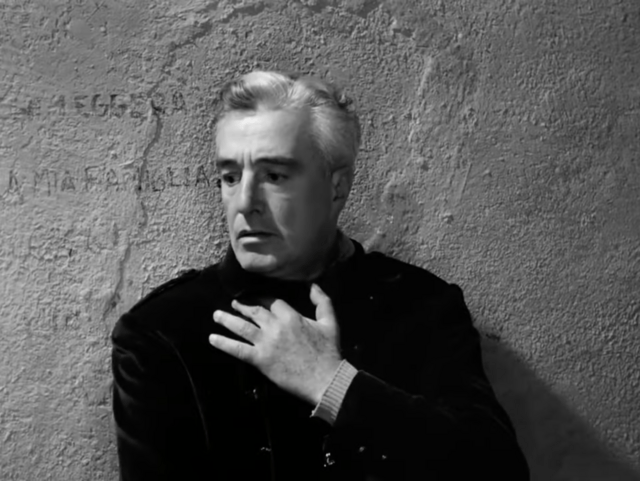
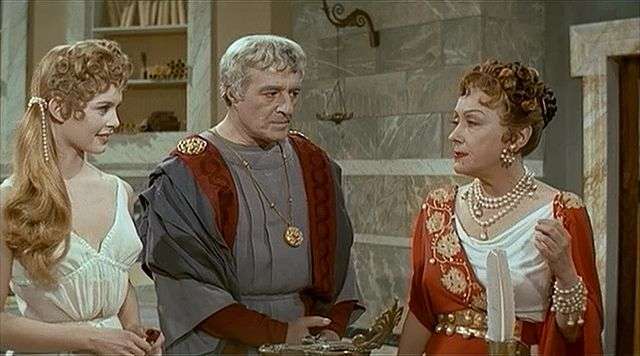
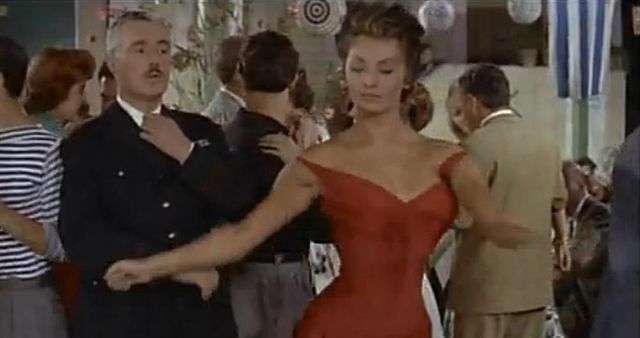
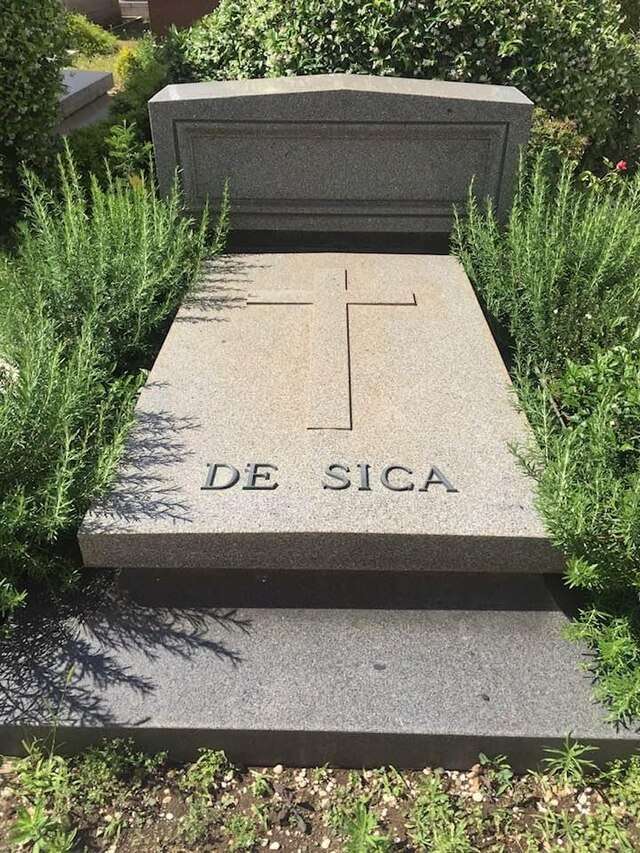
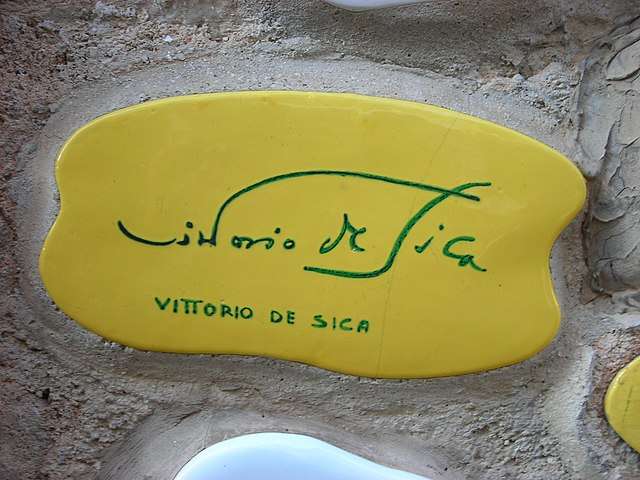
Facebook/ Gnews.cz - Jana Černá


